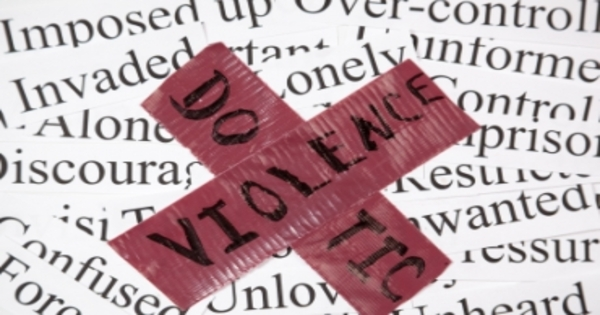Adults verbally abusing children is widely acknowledged as a type of child maltreatment and a severe concern. While laws and definitions differ by country, most child protection organizations and agencies, as well as many legal systems, consider verbal abuse of children to be a type of child abuse or neglect.
A recent systematic study led by UCL and Wingate University academics emphasizes the need to recognize children’s verbal abuse by adults as a distinct category of child maltreatment in order to enable targeted prevention and address the long-term harm it can cause.
Physical abuse, sexual abuse, emotional abuse, and neglect are the four types of child maltreatment that exist today. These classifications serve as a reference for the development of interventions and the monitoring of impacted groups.
The study, which was commissioned by the charity Words Matter and published in Child Abuse & Neglect: The International Journal, evaluates 149 quantitative and 17 qualitative studies to investigate how child verbal abuse is currently defined and quantified.
This systematic review is timely and of significant clinical value. Preventing the maltreatment of children is the most effective way we can reduce the prevalence of child mental health problems.
Professor Peter Fonagy
Researchers discovered that there needs to be a more standard means of categorizing childhood verbal abuse, as it now differs between parents and other authorities, and it is normalized as a form of discipline in some cultures.
Childhood verbal abuse takes the form of behaviors that are harmful to a child’s well-being, such as belittling, screaming, and threatening language. It was discovered that these activities could have a long-term impact on the child’s life, causing underlying emotional and psychological consequences such as greater risks of rage, sadness, substance misuse, self-harm, and obesity.
However, the team noted that there was a noticeable void in acknowledging childhood verbal abuse by adults as a distinct maltreatment subtype and that doing so would be a starting point for its identification and prevention.

Co-author, Professor Peter Fonagy (UCL Psychology & Language Sciences), said: “This systematic review is timely and of significant clinical value. Preventing the maltreatment of children is the most effective way we can reduce the prevalence of child mental health problems. A sharp focus on childhood verbal abuse by adults around them by the new charity Words Matter, and this review will help make significant change, and support and direct our efforts to identify and respond to this risk in an effective and timely manner.”
Data from the World Health Organization (WHO) has found that emotional abuse is now the most prevalent form of child maltreatment, ahead of physical or sexual abuse. However, researchers found that the term “emotional abuse” was ambiguous and focused on the victim.
Whereas the term “childhood verbal abuse” zeroes in on the adult’s actions and this onus could be a starting point for prevention, were it to be made a subtype in its own right. There was also a range of varying terminology associated with “verbal abuse” across the studies, with terms such as “verbal aggression,” “verbal hostility” and “verbal abuse” being used — highlighting the need for standardized terminology in this area.
According to the analysis, the most common perpetrators of childhood verbal abuse by adults were parents (76.5%), other adult caregivers in the household (2.4%), and teachers (12.71%). Coaches (0.6%) and cops (0.6%) were also mentioned as adults.
The most common manifestations of verbal abuse were yelling and screaming. The research, however, emphasizes that definitions of childhood verbal abuse should take into account not only the words used, but also the intent, delivery, and direct impact on children. More research on certain age groups would be required to better understand the impacts of this behavior.
“Childhood verbal abuse desperately needs to be recognized as an abuse subtype, because of the lifelong negative consequences,” said lead author Professor Shanta Dube (Wingate University, US). Increased awareness and treatments targeting perpetrators of physical and sexual abuse have resulted in significant reductions in these forms of maltreatment. We may design similar strategies to avoid children’s verbal abuse and its consequences if we focus on ‘verbal abuse’ by offenders rather than only ’emotional abuse’ among victims.
“Breaking the intergenerational cycles starts with the adults.”
“It’s critical to grasp the true scale and impact of childhood verbal abuse,” said Jessica Bondy, Founder of Words Matter, a recently created charity with the purpose of improving children’s overall health and welfare by reducing verbal abuse by adults in their lives. Every grownup gets overwhelmed at times and says things unintentionally. We must all work together to find ways to recognize these behaviors and put an end to adult verbal abuse of children so that they can thrive. Words have power; they may either uplift or destroy. Let us build up youngsters rather than tear them down.”





